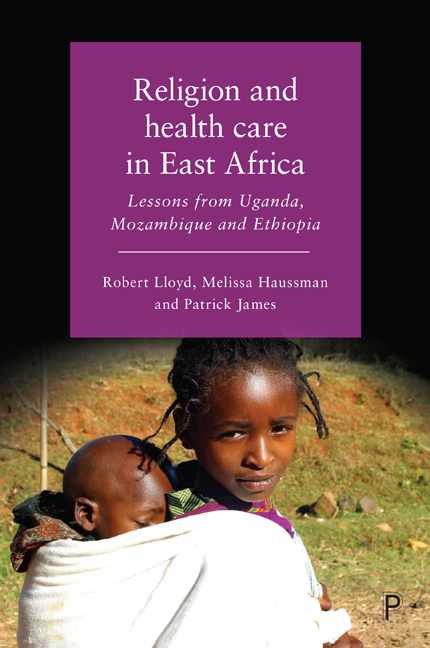4 - Mozambique
Published online by Cambridge University Press: 27 April 2022
Summary
Overview
This chapter turns its attention to religion and health care in Mozambique. The two basic questions from Chapter 1 will be answered, at least in part, by the research reported here: (1) “How does religion factor into the Social Determinants of Health?”; and (2) “What is its connection to outcomes?”
Before moving ahead to answer those questions systematically, it seems appropriate to foreshadow the basic contributions of the chapter. Mozambique, an especially poor state, had a Marxist government that suppressed religion for decades. People retained their religion, however, and it influences health care quite significantly in contemporary Mozambique. Health planning from the government exists but is challenged by persistent poverty and underdevelopment. Christian and Muslim Faith-Based Organizations play an important role in fighting HIV/AIDS and the provision of health care in general. Pentecostalism is rising and plays a controversial role in its engagement with modern medicine. People still seek traditional health care and even combine such visits with more Western-style treatments from health centers and hospitals. Women's health is somewhat better than in some other African states—one of the few positive legacies from the previous Marxist regime. In sum, religion turns out to be essential to both the provision and consumption of health care in Mozambique.
The Republic of Mozambique gained independence from Portuguese colonial rule in 1975. Due to a lack of Portuguese capital or commitment to develop its colony, Mozambique ended up less economically developed at the time of decolonization than other countries in Africa. A decade-long struggle for independence aggravated the lagging economy of Mozambique. Its level of economic development was also impacted by disastrous political and economic policies adopted by the new Marxist government, as well as a 15-year civil war that commenced soon after independence. In 1994, the civil war ended and the country initiated political and economic reforms that have led to tangible socio-economic improvements. Nonetheless, Mozambique remains among the world's poorest countries.
According to United Nations (UN) data, in 2009, 60.7% of the population lived on less than USD1.25 per day (calculated in terms of purchasing power parity). The impact of economic growth and development following the end of the war is evident.
- Type
- Chapter
- Information
- Religion and Health Care in East AfricaLessons from Uganda, Mozambique and Ethiopia, pp. 81 - 116Publisher: Bristol University PressPrint publication year: 2019



